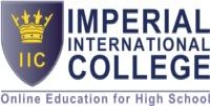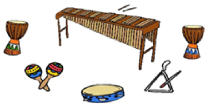Campaign against NCS in 2001
Source : Tuisonderwys Mailing List
----------------------------------------------
Proposed National Curriculum Standard Presentation by the Pestalozzi Trust at a special ministerial hearing – Cape Town 13th November 2001
Chairperson, Ladies and Gentlemen, thank you for this opportunity.
We represent the Pestalozzi Trust. It is a Christian ministry, functioning as registered, non-profit membership organization to preserve and promote the rights and freedoms of families of all faiths, and those of no faith, to educate their children according to their own convictions. In this, we focus on the legal defence of home education.
Firstly, we wish to record our appreciation for the work that has gone into the present document. Some of our own earlier inputs are now reflected in it.
_________________________
The booklet that I hold in my hand contains the most important legacy of our past. This is the progressive and negotiated constitution of the Republic of South Africa. It was negotiated by us, the parents and the grandparents of the children who are now of school going age. It was paid for by the agony and the blood of many from all the communities of this country. It reflects the shared wisdom of our common past. This Constitution means that we are not just a democracy, but a constitutional democracy. Our Bill of Rights protects individuals and minorities against the dictatorship of the majority and it does so especially if their cause is not a popular cause.
_________________________
This box contains the proposed National Curriculum Statement. Next to the Constitution, this curriculum will be the most important document to determine the nature, the character and quality of our society thirty years from now and beyond.
Therefore, the curriculum must promote the values of the Constitution. It must promote respect and tolerance.
Sadly, it fails on all these counts.
Firstly: This document will require children to adopt, internalise and exhibit values purported to be the values of the constitution. If they fail in this, they will be prohibited from access to all further education. In making values compulsory, however, this document assaults one of the core provisions of the constitution itself – that the state may not impose a belief or philosophy on the population. In this respect the curriculum, therefore, violates not only the values, but the very terms of the Constitution.
Secondly: The curriculum must promote tolerance, and it is claimed that this one does. What, however, do we mean by “tolerance”? It is said, in the Manifesto on Values, Education and Democracy that: “By tolerance we do not mean the shallow notion of putting up with people who are different, but a deeper and more meaningful concept of mutual understanding, reciprocal altruism and the active appreciation of the value of human difference”. We agree that the proposed curriculum does seem to promote this “deeper and more meaningful concept”. However, the notion of “tolerance” promoted in this curriculum does not agree with the dictionaries. No, the dictionaries tell us, “tolerance” does indeed mean “putting up with people who are different”. It means enduring people whom we do not understand and who show no altruism towards us. It means the ability to put up with people even when we do not understand the value of the ways in which they differ from us.
We conclude, therefore, that whatever this “deeper and more meaningful concept” is, it is not the thing that we understand in the English language as “tolerance”. Indeed, negates the normal meaning of tolerance as understood by speakers of English.
To call it “tolerance”, therefore, is false and misleading. Indeed – it comes dangerously close to a bigoted and politically correct intolerance of those who do not understand. Or those who simply exercise their Constitutional right to privacy – the right that is also known as the right to be left alone. It was George Orwell who coined the term ”newspeak” for this kind of conceptual manipulation. Those who understand Afrikaans would simply say: “Hulle smokkel met ons kop”.
Thirdly: We also investigated whether the proposed National Curriculum Statement promotes respect. We found that it does promote respectful deference to the beliefs, choices and actions of others – provided that those beliefs, choices and actions conform to the purported “values of the Constitution”. But that will produce a weak and degenerate nation, unprepared to uphold our progressive Constitution. For our Constitution requires them to be made of sterner stuff.
Our Constitution does not demand of us to respect the views and deeds of others at all – in stead, it requires much more. It demands that we respect the rights of others to hold and express views that we do not understand – views that we disagree with – views that differ from the perceived values of our Constitution. It demands that we respect (provided that they do not break the law) the right of others to conduct themselves in ways that we dislike or that we find abhorrent. Our Constitution demands that we respect and defer to, that we defend with our lives if need be, the right of others to offend us. This we find, also, at the core of the teachings of Christ.
In conclusion: After our people, this Constitution is the most precious thing our nation, as a nation, has. We will not let it be abused. And despite the sad and sometimes horrible exceptions, the pages of human history have taught that children are to parents the most precious thing they have. Dearer than life itself.
We have a constitutional duty to protect their fundamental rights against the State itself. We recommend that this curriculum be redrafted from its philosophical foundations up, because it does not promote the values of the Constitution and it promotes neither tolerance nor respect. In stead, we are reminded of the words of Baron von Clausewitz, who observed that “War is the continuation of diplomacy by other means”. This curriculum takes the education of our children and makes it a tool for social engineering. It is a continuation of politics by other means. I thank you.
-------------------------------------------------
Voorgestelde Nasionale Kurrikulumstelling Voorlegging deur die Pestalozzi Trust tydens 'n spesiale ministeriële verhoor – Kaapstad 13 November 2001
Voorsitter, Dames en Here, dankie vir hierdie geleentheid.
Ons verteenwoordig die Pestalozzi Trust. Dit is 'n Christelike bediening, en funksioneer as 'n geregistreerde, nie-winsgewende lede-organisasie. Die doel daarvan is om die regte en vryhede van gesinne van alle gelowe, en ook dié van geen geloof, te beskerm en te bevorder om hulle in staat te stel om hul kinders volgens hul eie oortuigings op te voed. Hierin val die klem op die regsverdediging van tuisonderwys.
Eerstens wil ons graag ons waardering uitspreek vir die werk wat in die huidige dokument gesteek is. Van ons vroeëre insette word nou daarin weerspieël.
_________________________
Die boekie wat ek in my hand hou, bevat die belangrikste erflating van ons verlede. Dit is die progressiewe, onderhandelde grondwet van die Republiek van Suid-Afrika. Dit is onderhandel deur ons, die ouers en grootouers van die kinders wat nou van skoolgaande ouderdom is. Die prys daarvoor was die worsteling en die bloed van duisende burgers uit al die gemeenskappe in hierdie land. Dit weerspieël die gesamentlike wysheid van ons gemeenskaplike verlede. Hierdie Grondwet beteken dat ons nie net 'n demokrasie is nie, maar 'n grondwetlike demokrasie. Ons Handves van Menseregte beskerm individue en minderhede teen die diktatorskap van die meerderheid, en doen dit spesifiek as die saak van die minderheid nie 'n populêre saak is nie.
_________________________
Hierdie doos bevat die voorgestelde Nasionale Kurrikulumstelling. Naas die Grondwet is hierdie kurrikulum die belangrikste dokument wat die aard, die karakter en die kwaliteit van ons samelewing dertig jaar van nou af en vorentoe gaan bepaal.
Daarom moet die grondwet die waardes van die Grondwet bevorder. Dit moet respek en verdraagsaamheid bevorder.
Ongelukkig slaag dit nie daarin om hierdie doelstellings te bereik nie.
Eerstens: Hierdie dokument sal van kinders vereis om waardes te aanvaar, te internaliseer en aan die dag te lê wat voorgee om die waardes van die Grondwet te wees. As hulle nie daarin slaag nie, sal hulle toegang tot alle verdere opleiding geweier word.
Deur waardes verpligtend te maak, val hierdie dokument egter een van die kernbepalings van die Grondwet self aan – naamlik dat die staat nie 'n geloof of filosofie op die bevolking mag afdwing nie. In hierdie opsig skend die kurrikulum dus nie alleen die waardes van die Grondwet nie, maar die uitdruklike bepalings van die Grondwet.
Tweedens: Die kurrikulum moet verdraagsaamheid bevorder, en daar word beweer dat hierdie kurrikulum dit wel doen. Wat bedoel ons egter met "verdraagsaamheid" ("tolerance")?
Die "Manifesto on Values, Education and Democracy" stel dit soos volg: “By tolerance we do not mean the shallow notion of putting up with people who are different, but a deeper and more meaningful concept of mutual understanding, reciprocal altruism and the active appreciation of the value of human difference”.
Ons stem saam dat dit lyk of die voorgestelde kurrikulum hierdie “deeper and more meaningful concept” bevorder. Die idee van “tolerance”/"verdraagsaamheid" wat in hierdie kurrikulum bevorder word, stem egter nie ooreen met die omskrywing in die woordeboeke nie. Nee, volgens die woordeboeke beteken “tolerance” inderdaad “putting up with people who are different”. Dit beteken om mense te verdra vir wie ons nie verstaan nie en wat geen onbaatsugtige liefde teenoor ons bewys nie. Dit beteken die vermoë om mense te verdra selfs wanneer ons nie die waarde van die wyses waarop hulle van ons verskil, verstaan nie. Ons kom dus tot die gevolgtrekking dat wat hierdie “deeper and more meaningful concept” ook al is, dit nie die ding is wat ons in normale taalgebruik verstaan onder "tolerance"/"verdraagsaamheid" nie. Om die waarheid te sê, dit ontken die betekenis van die woord "tolerance"/"verdraagsaamheid" soos dit normaalweg deur sprekers verstaan word.
Om dit dus “tolerance”/"verdraagsaamheid" te noem, is vals en misleidend. Dit kom inderdaad baie na aan 'n verwronge en politiek korrekte onverdraagsaamheid van diegene wat nie verstaan nie. Of van diegene wat eenvoudig hul grondwetlike reg op privaatheid uitoefen – die reg wat ook bekend staan as die reg om met rus gelaat te word. Dit was George Orwell wat die term ”newspeak” geskep het vir hierdie tipe konseptuele manipulasie. In Afrikaans sê 'n mens eenvoudig: “Hulle smokkel met ons koppe”.
Derdens: Ons het ook ondersoek ingestel daarna of die voorgestelde Nasionale Kurrikulumstelling respek bevorder. Ons het gevind dat dit wel eerbiedige respek vir die geloof, keuses en handelinge van ander bevorder – mits daardie geloof, keuses en handelinge ooreenstem met die sogenaamde “waardes van die Grondwet”. Maar dit sal 'n swak en ontaarde bevolking produseer, mense wat nie bereid is om ons progressiewe Grondwet te onderskryf nie.
Want ons Grondwet vereis mense van 'n ander kaliber. Ons Grondwet vereis hoegenaamd nie van ons om die sienings en dade van ander te respekteer nie – dit vereis tewens veel meer. Dit vereis dat ons die regte van ander respekteer om sienings wat ons nie verstaan nie – sienings wat ons nie mee saamstem nie – sienings wat verskil van die waargenome waardes van ons Grondwet te huldig en uit te druk. Dit vereis dat ons die reg van ander respekteer om hulle op wyses te gedra wat ons nie van hou nie of wat ons aanstootlik vind (mits hulle nie wet breek nie).
Ons Grondwet vereis dat ons die reg van ander respekteer en eerbiedig om ons te aanstoot te gee, en dat ons dit met lewens verdedig, indien nodig. Dit staan ook in die kern van Christus se leringe.
Ter samevatting:
Naas die mense van ons land self, is hierdie Grondwet die mees waardevolle besitting van die mense van ons land. Ons sal nie toelaat dat dit misbruik word nie. En ten spyte van die treurige en soms aaklige uitsonderings op die reël, leer die geskiedenis ons dat kinders hul ouers se heel kosbaarste besitting is. Kosbaarder as die lewe self.
Ons het 'n grondwetlike plig om hul grondwetlike regte teen die Staat self te beskerm. Ons stel voor dat hierdie kurrikulum van die filosofiese grondslae opwaarts herskryf word, aangesien dit nòg die waardes van die Grondwet, nòg verdraagsaamheid ("tolerance"), nòg respek bevorder.
Dit laat 'n mens dink aan die woorde van Baron von Clausewitz, wat opgemerk het dat "War is the continuation of diplomacy by other means”. Hierdie kurrikulum neem die onderwys van ons kinders en maak daarvan 'n instrument vir maatskaplike manipulasie. Dit is "a continuation of politics by other means".
Ek dank u.
Events
Legal & Research
Homeschooling and the law
Home schooling was recognized in 1996 in Section 51 of the SA Schools
+ ViewCentres
Homeschool ABC
Support
Curriculums
Music Classes: Percussion Music ...
Percussion Music Group There is no greater joy than making ...
Impaq: Homeschool & Online ...
Impaq: The leading homeschooling curriculum provider in South ...
Cambridge & International ...
As of 1 January 2025, Macmillan Education is the sole agent ...
GED through Learnalot - Grade 12 ...
Why enrol with Learnalot? With Learnalot, you have the flexibility ...
Frequently Asked Questions
-
Do homeschoolers take holidays?
Yes, they take breaks. Some homeschool families follow the public school year calendar especially if they are involved in sport and music...
-
Do home learners sometimes wish they were in school and were normal?
They generally like being homeschooled. Some homelearners go to school for the experience but many return to homeschooling as within the homeschool...
-
Do home learners get homework?
In general all their schoolwork is homework and they do not get to do extra work in the afternoons. A tutor might give some extra work to complete...
-
Where can I find homeschool support groups?
There are many support groups consisting of parents that do things together and help each other. These groups operate on Facebook, mailing lists and...
Has no content to show!


































